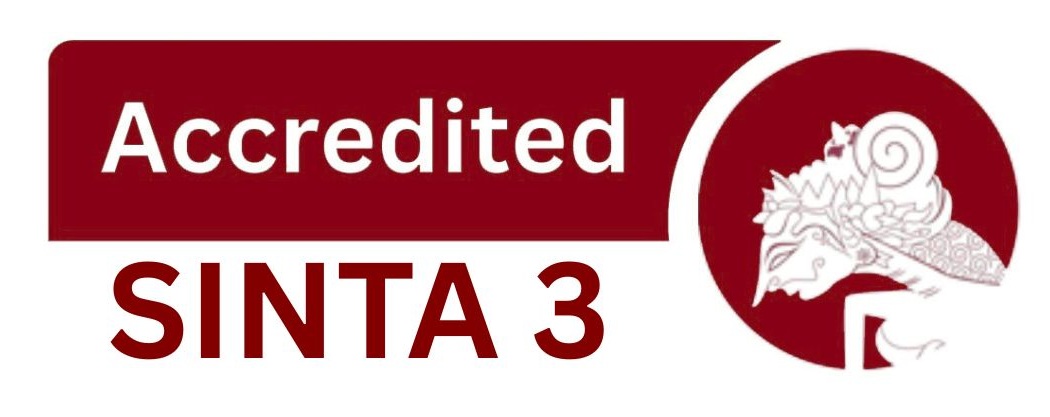JUNIOR HIGH SCHOOL STUDENTS’ EXPERIENCES IN GOOGLE CLASSROOM TO PROMOTE AUTONOMY IN ONLINE ENGLISH LEARNING
DOI:
https://doi.org/10.22460/eltin.v10i2.p88-102Keywords:
Autonomous learners, Google Classroom, learning autonomy, online English learning.Abstract
Online learning in Education has been increasingly implemented since the pandemic happened. Junior high schools use Google Classroom because it is the potential to enhance the teaching-learning activities, and the students also inevitably have to use it for learning, specifically English subjects. Previous studies claimed that Google Classroom is a useful online learning platform for students and teachers. Learning English online using Google Classroom for reading, writing, and grammar skills is possible. However, the previous studies mainly focused on upper secondary school students and teachers. Hence, thisstudy aims to explore junior high school students’ experiences and learning autonomy in learning English online through Google Classroom during the new regulation of limited face-to-face classes. This study used a qualitative methodology and collected the data through questionnaires and semi-structured interviews. The findings indicated that 7th-grade students with a total of 82 students have positive as well as unpleasant experiences when learning English using Google Classroom. Furthermore, the findings also indicated that junior high school students as reactive autonomous learners could enhance their English learning autonomy when using Google Classroom
References
Adianingrum, E. K. (2017). Learner autonomy in language learning : English education students ’ attitudes. In Conference on Language and Language Teaching, 1999, 473–478. https://semnas.untidar.ac.id
Aini, Y. I. (2019). The the use of Google classroom as an English learning media. Edu-Ling: Journal of English Education and Linguistics, 2(1), 11. https://doi.org/10.32663/edu-ling.v2i1.473
Albashtawi, A., & Al Bataineh, K. (2020). The effectiveness of google classroom among EFL students in Jordan: An innovative teaching and learning online platform. International Journal of Emerging Technologies in Learning (IJET), 15(11), 78–88. https://doi.org/10.3991/IJET.V15I11.12865
Ambarwati, R., & Mandasari, B. (2021). Students ’ motivation toward the use of google classroom in learning English during covid-19 pandemic at SMAN 1 Sukoharjo. Journal of Arts and Education, 1(1), 10–18.
Ashadi, N. R., & Suhaeb, S. (2020). Hubungan Pemanfaatan Google Classroom dan Kemandirian terhadap Hasil Belajar Mahasiswa PTIK pada Masa Pandemi. Jurnal Media Elektrik, 17(2), 46–51.
Banat, A., & Martiani. (2020). Kemandirian belajar mahasiswa penjas menggunakan media google classroom melalui hybrid learning pada pembelajaran profesi pendidikan di masa pandemi covid-19. Jurnal Teknologi Pendidikan (JTP), 13(2), 119-125. https://doi.org/10.24114/jtp.v13i2.20147
Benson, P. (2007). Autonomy in language teaching and learning. Language Teaching, 40(1), 21–40. https://doi.org/10.1017/S0261444806003958
Benson, P. (2013). Teaching and researching: Autonomy in language learning. Routledge.
Bhat, S., Raju, R., Bikramjit, A., & D’souza, R. (2018). Leveraging e-learning through google classroom: A usability study. Journal of Engineering Education Transformations, 31(3), 129–135. https://doi.org/10.16920/jeet/2018/v31i3/120781
Dalilan, D. (2021). Indonesian EFL students’ perceptions on learning autonomy in online learning delivery mode. PANYONARA: Journal of English Education, 3(2), 122–134. https://doi.org/10.19105/panyonara.v3i2.5140
Damayanti, E., Kantun, S., & Tiara, T. (2022). Pengaruh Penggunaan Google Classroom terhadap Kemandirian Belajar Siswa Kelas XII IPS SMA Negeri Ambulu Jember. Jurnal Ilmiah Profesi Pendidikan, 7(1), 62–68.
Dickinson, L. (1987). Self-instruction in language learning. Cambridge: Cambridge University Press.
Gupta, A., & Pathania, P. (2021). To study the impact of Google Classroom as a platform of learning and collaboration at the teacher education level. Education and Information Technologies, 26(1), 843–857. https://doi.org/10.1007/s10639-020-10294-1
Hamka, D., & Vilmala, B. K. (2019). Pengembangan Perangkat Pembelajaran Blended Learning Melalui Aplikasi Google Classroom Untuk Peningkatan Kemandirian Belajar Mahasiswa. Journal of Education Informatic Technology and Science (JeITS), 1(2), 145–154.
Heggart, K., & Yoo, J. (2018). Getting the most from google classroom: A pedagogical framework for tertiary educators. Australian Journal of Teacher Education, 43(3), 140–153. https://doi.org/10.14221/ajte.2018v43n3.9
Huda, M. N., Mulyono, Rosyida, I., & Wardono, W. (2019). Kemandirian Belajar Berbantuan Mobile Learning. In PRISMA, Prosiding Seminar Nasional Matematika, (Vol. 2, pp. 798–806). https://journal.unnes.ac.id/sju/index.php/prisma/article/view/29270
Holec, H. (1981). Autonomy in Foreign Language Learning. Oxford: Oxford University Press.
Iryani, E., Sobri, M., & Tersta, F. W. (2020). Autonomous Learning: Manifestasi Merdeka Belajar Bahasa di Prodi Pendidikan Bahasa Arab. Arabia: Jurnal Pendidikan Bahasa Arab, 12(2), 79-100. https://doi.org/10.21043/arabia.v12i2.8392
Khalil, Z. M. (2018). EFL students’ perceptions towards using google docs and google classroom as online collaborative tools in learning grammar. Applied Linguistics Research Journal, 2(2), 33–48. https://doi.org/10.14744/alrj.2018.47955
Kumar, J. A., & Bervell, B. (2019). Google Classroom for mobile learning in higher education: Modelling the initial perceptions of students. Education and Information Technologies, 24(2), 1793–1817. https://doi.org/10.1007/s10639-018-09858-z
Littlewood, W. (1996). “Autonomyâ€: An anatomy and a framework. System, 24(4), 427–435. https://doi.org/10.1016/S0346-251X(96)00039-5
Melani, M. (2020). The Effect of Google Classroom assisted extensive listening on listening comprehension accross learning autonomy. Lingua Cultura, 14(1), 129–142. https://doi.org/10.21512/lc.v14i1.6493
Mualim, M., Ma’rufah, D. W., & Sartika, E. (2019). The Strengths and Pitfalls of Google Classroom Application to Gen-Z Students’ Learning Hybridity. In Proceeding of International Conference on Islamic Education (ICIED) (Vol. 4, No.1, pp 297–301). http://conferences.uin-malang.ac.id/index.php/icied/article/view/1108
Mulya, A. K., & Aimah, S. (2020). Persepsi Siswa Terhadap Penggunaan Aplikasi Google Classroom ( GCr ) Dalam Pembelajaran Bahasa Inggris. In Prosiding Seminar Nasional Unimus (Vol. 3, pp 184–194).
Nartiningrum, N., & Nugroho, A. (2021). English teachers’ perspectives on challenges, suggestions, and materials of online teaching amidst the global the covid-19 pandemic that happens globally brings challenges in teaching secondary school year 7-9 compelling to be investigated. Learning E. IJEE (Indonesian Journal of English Education), 8(1), 101–119. https://doi.org/10.15408/ijee.v8i1.17886
Orawiwatnakul, W., & Wichadee, S. (2017). An investigation of undergraduate students’ beliefs about autonomous language learning. International Journal of Instruction, 10(1), 117–132. https://doi.org/10.12973/iji.2017.1018a
Qalbu, N. (2021). Pengaruh Kemandirian Belajar Terhadap Hasil Belajar Matematika Siswa Kelas VI SDIT Nurul Hikmah Tanjung Jabung Timur. (Doctoral Dissertation, UIN Sulthan Thaha Saifuddin Jambi) http://repository.uinjambi.ac.id/id/eprint/8050
Sinaga, R.R. F., & Pustika, R. (2021). Exploring students’ attitude towards English online learning using Moodle during covid-19 pandemic at SMK Yadika Bandarlampung. Journal of English Language Teaching and Learning, 2(1), 8–15.
Syelitiar, F., & Putra, A. (2021). Systematic Literatur Review: Kemandirian Belajar Siswa Pada Pembelajaran Daring. Sepren, 2(2), 23–31. https://doi.org/10.36655/sepren.v2i2.490
Suphandee, U., Sripai, S., Woonprasert, J., Ardwichai, S., & Suphandee, T. (2018). Indicators of characteristics of Learners Autonomy in English Language of Primary 6 students in the Northeast of Thailand. Educational Research and Reviews, 13(15), 590–597. https://doi.org/10.5897/err2018.3562












